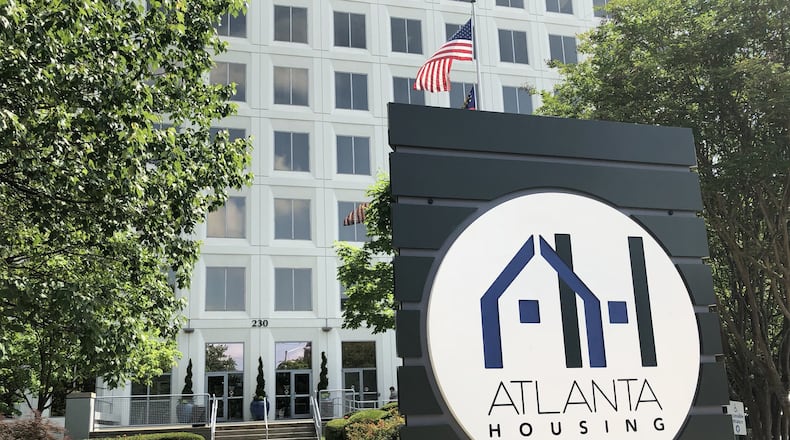Atlanta is considering the creation of a nonprofit to build mixed-income housing that is not reliant on the tax credits that are often used to develop affordable housing citywide.
The Atlanta Housing Authority’s real estate committee met last month to introduce a proposal to create the Atlanta Urban Development Corporation, a subsidiary under the city’s low-income housing agency. The nonprofit would be tasked with creating social housing, a European model where rentals are owned in part by the government to provide affordable housing. The new nonprofit would primarily create and preserve the homes on redeveloped publicly-owned land.
City officials will soon have an opportunity to review the proposal as Atlanta Mayor Andre Dickens continues to find ways to build and preserve 20,000 affordable units by 2026. Atlanta built 2,300 units last year, and 5,400 more units are in the construction pipeline.
But a lot of those projects are funded by state and federal low-income tax credit programs, and the administration says the city can only obtain so many of those resources.
Joshua Humphries, the mayor’s senior housing policy advisor, said the goal is to use the city’s new $100 million housing bond to jumpstart the nonprofit. According to the city’s concept presentation to the housing authority, Atlanta will use $38 million from the bond to create a Housing Production Fund, which would be managed by Invest Atlanta to provide low-interest, mezzanine construction financing for mixed-income, multifamily housing projects that don’t receive low-income housing tax credits.
Credit: Natrice Miller / Natrice.Miller@ajc.com
Credit: Natrice Miller / Natrice.Miller@ajc.com
The Housing Production Fund alone is tentatively projected to create 800 units by 2029, according to the city presentation. At least 30% of the units for projects supported by the fund would be affordable for a household of three that earns $73,520, or 80% of the area median income. Among those units, half of them will be available for a three-person household earning $55,140, or 60% AMI.
According to the city presentation, the nonprofit’s nine-person board will include the Atlanta Housing Board Chair, the mayor or a designee, the City Council Community Development/Human Services Chair, and four seats appointed by the housing authority board — three of those seats would be selected from nominees provided by the mayor.
The Invest Atlanta CEO and housing authority CEO would also participate as non-voting board members.
The nonprofit’s funding would not come from the housing authority or the U.S. Department of Housing and Urban Development, according to the city presentation. The mayor’s office would work with City Council to identify the funds and the city-owned sites for the nonprofit.
Humphries said the initial staffing will include contracted consultants and temporary city staff. According to the city presentation, the nonprofit’s executive leadership would be paid partially based on how fast projects are constructed and leased.
Atlanta Housing could possibly OK the creation of the nonprofit at this month’s meeting, Humphries said. Housing authority officials did not respond to requests for comment.
If the housing authority OK’s the nonprofit’s creation this month, Humphries said the full City Council could weigh in on its’ funding and prospective land usage for projects by next month or September.
City Councilman Matt Westmoreland says he’s excited over the proposal.
“My North Star at the end of the day in any affordable housing conversation is how do we preserve the most number of units possible at the deepest level of affordability,” Westmoreland said.
About the Author
Keep Reading
The Latest
Featured



